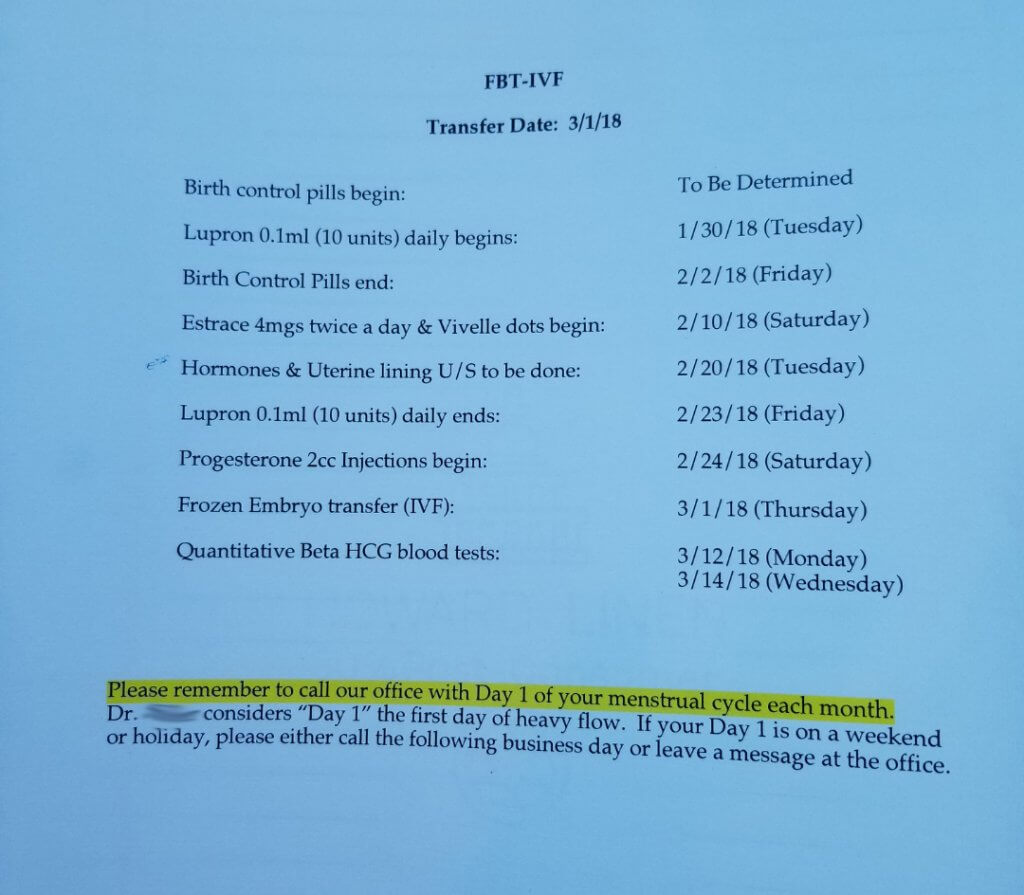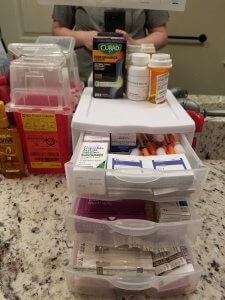You’ve spent weeks preparing for your embryo transfer date. You’ve taken the pills, given yourself the shots, gone to the appointments and “thought sticky thoughts” at your transfer procedure. Now, you learn that this transfer failed.
Every gestational surrogate will have a different reaction to a failed embryo transfer. However, the following general tips may help you cope with this loss and begin to take the next steps in your journey as a surrogate:
Do:
Acknowledge your intended parents’ feelings.
If your intended parents struggled with infertility or pregnancy loss prior to pursuing surrogacy, this failed transfer may come as a serious emotional (and financial) blow to them. They may pull away for a while, or they may turn to you for support. Try to be aware of their needs, and acknowledge the importance of this loss for them. It can be tempting to want to “fix” this for them, but letting them know that you’re there for them will be more important.
Acknowledge your own feelings.
The intended parents aren’t the only ones who will need to grieve a failed transfer. Gestational surrogates often say they feel a sense of guilt or failure, in addition to sadness and disappointment. You put so much effort and hope into this transfer, and finding out that it failed is a loss for you, too. Talking through what you’re feeling can help you begin to process this. Talk to your loved ones, your surrogate specialist, a counselor or other gestational surrogates who have been in your shoes. You’re not alone!
Understand the many reasons why this happens.
An embryo’s failure to implant can happen for any number of reasons, but ultimately, this particular embryo would not have been able to survive a pregnancy. All of the conditions have to be absolutely perfect for a human being to be created — on a chemical level, within an embryo, within a woman’s body and more. This is nature’s way of trying to create only healthy babies. That doesn’t make this loss any less sad; it’s just important to remember that this was out of your hands.
Don’t:
Blame yourself.
Again, those feelings of guilt are not uncommon for surrogates (and women in general) who have experienced a failed transfer. You may feel as if you’ve let your intended parents down somehow. You might wonder, “Did I do something wrong? Could I have done something more carefully?” The answer is, emphatically: No.
You’ve done (and are doing) an amazing job! Failed transfers are not uncommon, and they’re not anyone’s fault. If you’re struggling with a sense of guilt, please reach out to your surrogate specialist and your support system. We’re always here for you!
Lose sight of the big picture.
After weeks of a careful routine, medications, preparation and excitement, only to be let down by a failed transfer, it can be easy to feel overwhelmed and a little lost. In the emotions of a failed transfer, you can become caught up in second-guessing and questions like, “Is this worth it? Will this work?”
It’s not always easy in these low moments, but try to remember why you wanted to do this in the first place: to help your intended parents. Don’t forget that a failed transfer doesn’t mean a failed surrogacy journey.
Rush into another cycle if you’re not ready.
The preparation necessary for an embryo transfer is physically and emotionally taxing. You may still be recovering from the physical effects of the medication involved in the last cycle, and you may still be emotionally recovering from this failed transfer. Regardless, you might feel like you need some time before you try again.
This is something you’ll need to talk about with your intended parents, surrogate specialist and fertility clinic. That way, your next transfer attempt can be timed correctly with your cycle while still giving you space to rest.
Need to talk to someone after a failed embryo transfer? You can always contact a surrogate specialist at American Surrogacy by calling 1-800-875-BABY(2229).






 I used a cheap Walmart drawer container to store my medications. I’m very type A, and it helped organize things. I was constantly getting new shipments and refilling it. I also downloaded blank calendar pages to fill in what medications I took each day. I marked them off as I took them. It was taped to my bathroom mirror.
I used a cheap Walmart drawer container to store my medications. I’m very type A, and it helped organize things. I was constantly getting new shipments and refilling it. I also downloaded blank calendar pages to fill in what medications I took each day. I marked them off as I took them. It was taped to my bathroom mirror.




